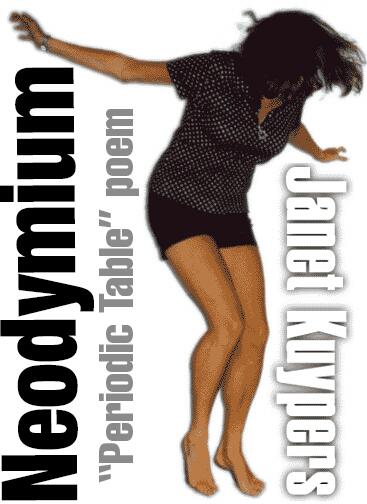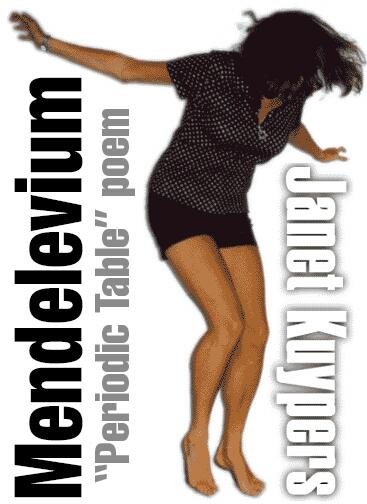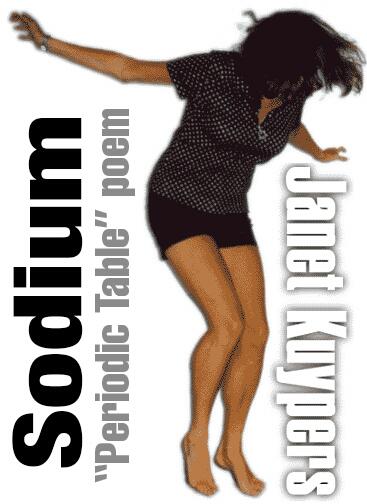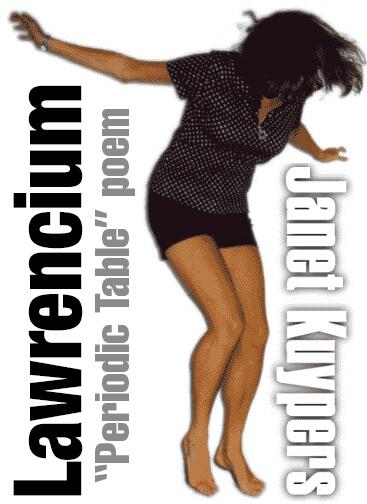Niobium
Janet Kuypers
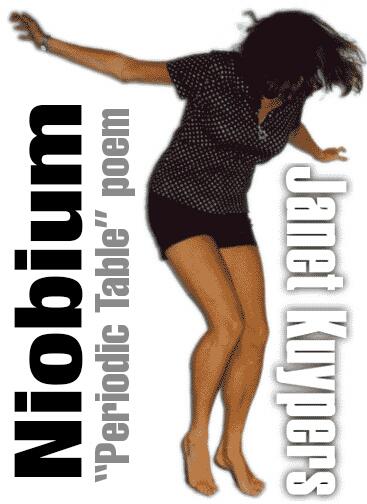
from the “Periodic Table of Poetry” series (#041, Nb)
started 7/5/13, finished 7/6/12
Niobium’s name is derived
from Greek Mythology,
from the woman Niobe,
daughter of Tantalus…
(and yes, there’s an element
Tantalum, and he’s
directly below her in the
Periodic Table, and it’s hard
to tell them apart sometimes…)
But after Niobe had more children
(seven sons and seven daughters),
and because Niobe felt she had
more prominent stature,
she asked,
“My father was a guest
at the table of the Gods.
My husband built and rules
this city. I have seven sons and
seven daughters worthy of pride.
You revere gods and goddesses
you cannot even see, but
aren’t I worthy
of goddess worship?”
Well, sounding a bit too haughty
to everyone in town,
the god Artemis
and her twin sister Apollo
used arrows for their vengeance —
Artemis killed Niobe’s daughters
Apollo killed Niobe’s sons.
I don’t know is any were spared,
but according to mythology,
when Niobe’s husband saw their dead sons,
he killed himself in grief and despair.
After losing everything.
Niobe fled to Mount Sipylus.
As she wept,
she was turned to stone,
and to this day
there is a natural rock formation there
that resembles a woman’s face,
and rainwater pours
through the porous limestone.
They call this the “Weeping Rock”
in honor of Niobe.
And sure,
Niobium is in chemicals
that are water soluble,
and Niobium is used
in superconducting magnets
(probably like how Niobe
had so many children,
and how everyone was drawn
to her beautiful face,
as she was always
resplendently adorned
in gold and jewels —
through I doubt she had
metal jewelry
made out of Niobium,
even though it turns
to a beautiful blue
when exposed to air).
Niobium is mixed with steel
to make it stronger —
since the Niobium in metal
is also more resistant to heat,
it can be used in anything
from jet engines,
to liquid rocket thrusters
for outer space.
(And as a funny twist, Niobium
is even in the main engine
of the Apollo Lunar Modules.)
You know, Niobium is often used
in commemorative coins,
with gold and silver.
So who knows,
maybe Niobe did have
Niobium in her jewelry,
as everyone admired
her beauty —
until she lost it all.

